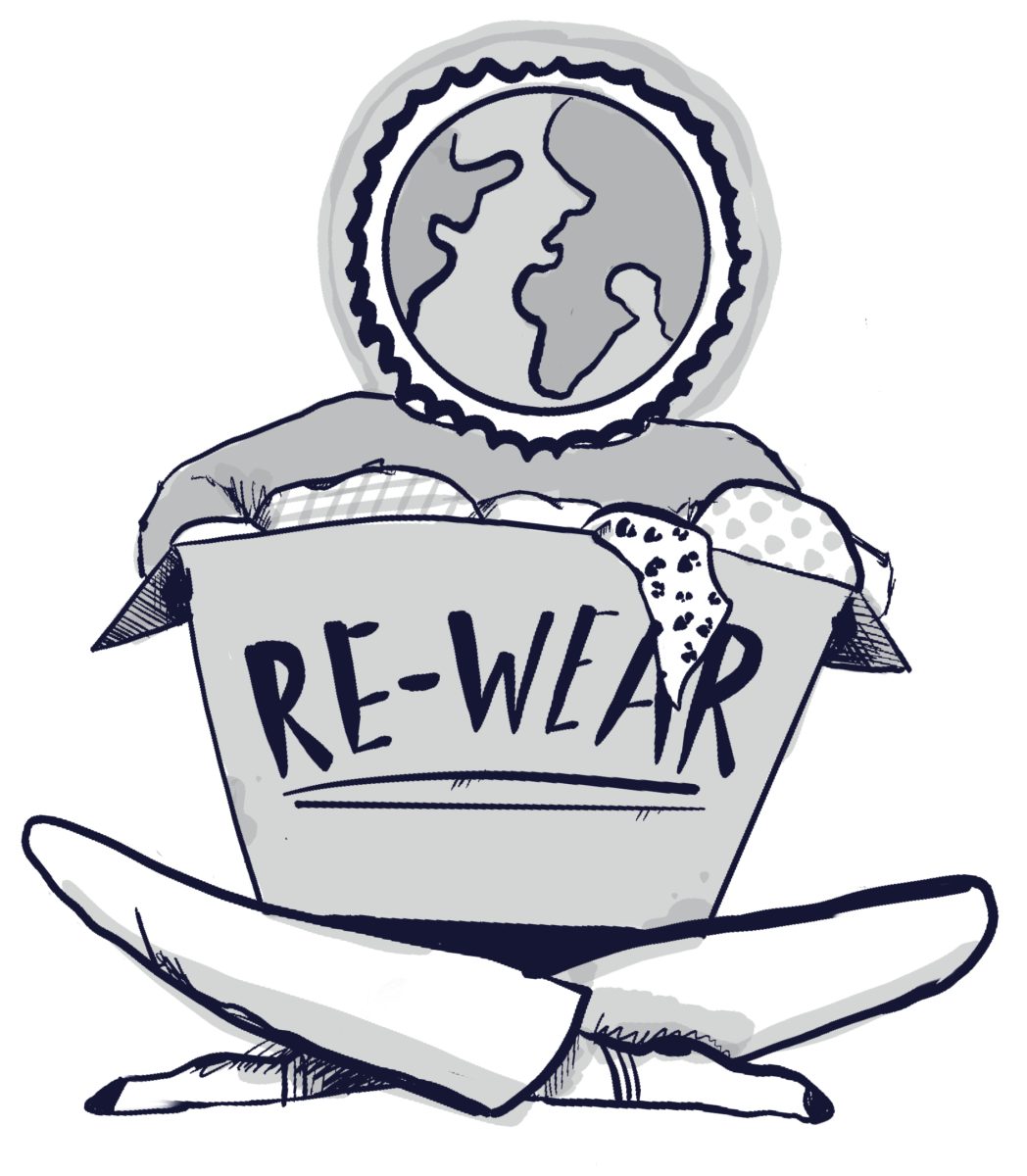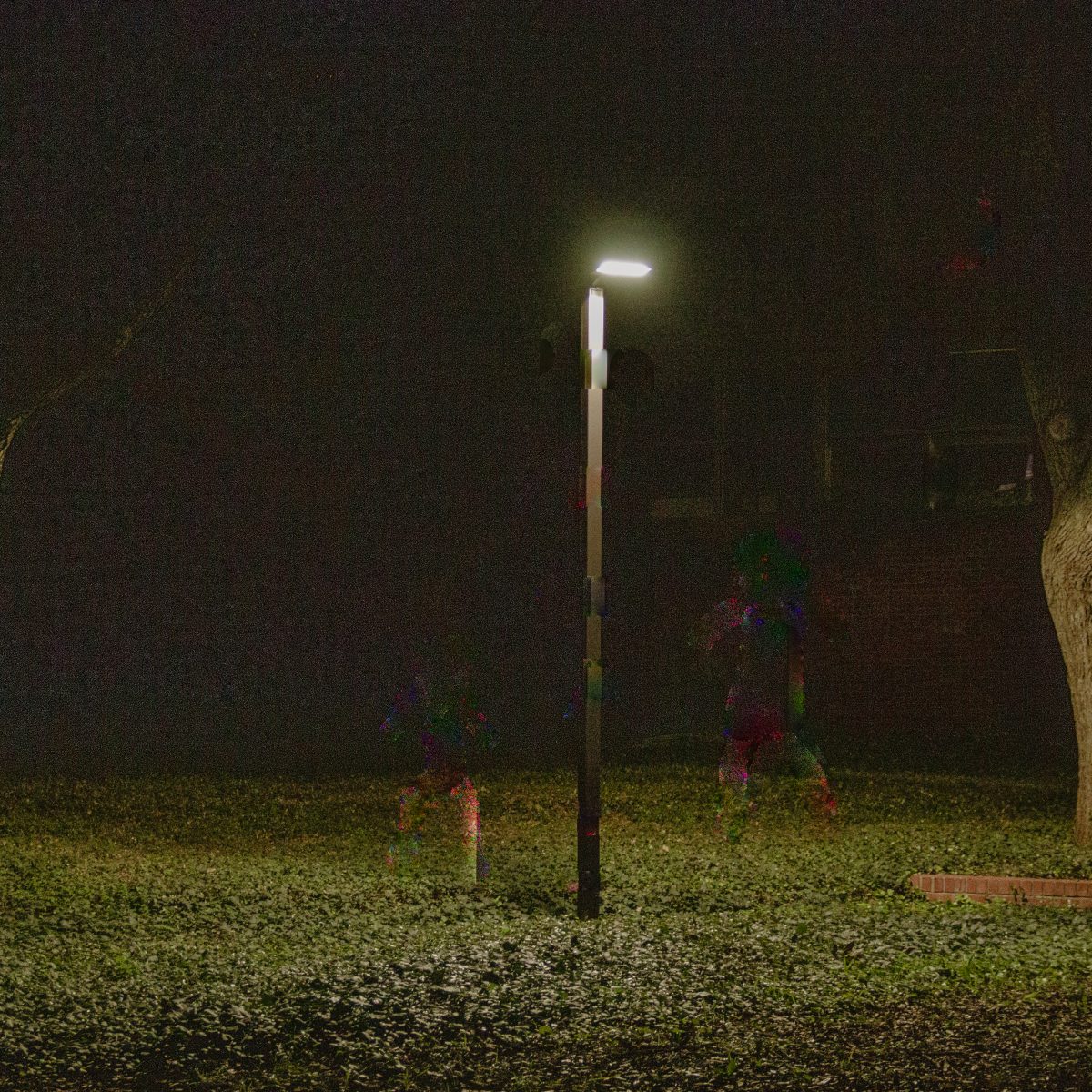Tucked away in the Tiger’s Den of the Coates Student Center, there’s a little alcove filled with steel racks, hangers and clothes that are free for the Trinity community to take. The ReWear Closet, a resource many students may not know about, is a space for second chances.
Started back in 2021, the ReWear Closet was an initiative brought to life by EcoHabits, a group of sustainability-minded individuals who wanted to help students and faculty at Trinity expand their eco-friendly practices and bring awareness to reduce environmental impact. EcoHabits focused primarily on waste reduction across campus, eventually expanding this to address the staggering amount of clothing and textiles that get thrown away every year.
In the U.S. alone, roughly 11 million tons of textiles end up in landfills every year, with only about 13% of trashed clothing being recycled. In addition to how environmentally harmful this level of waste is, over $500 billion is lost each year as a result of under-wearing and not recycling clothes all over the world.
This trend has worsened in recent years due to the rise of fast fashion, an industry now responsible for 8-10% of global greenhouse gas emissions. As the name implies, fast fashion takes advantage of the quick turnaround between current clothing fads to market and produce lesser-quality clothing en masse. This model of constant consumption is absolutely intentional — it keeps us buying clothes, always looking to explore new styles or expand our wardrobes. However, indulging in new garments every two weeks is far from sustainable.
Matching the surge in fast fashion, thrifting has also experienced an influx of interest. Like the former, thrifting can be an opportunity to find clothes at a lower cost, curating individual style in a manner that doesn’t require the support of child labor in the fast fashion industry. Thrifting also tends to be accessible for people who don’t have the money to refurbish their wardrobe on a regular basis. Additionally, buying clothes second-hand prevents the perpetual production of fast fashion garments that are overwhelmingly thrown away instead of repurposed.
Despite its benefits, thrifting hasn’t been immune from the influence of the fast fashion industry on societal patterns of consumption. Most second-hand stores will feature a decent amount of clothing from Shein or Asos or Forever 21, reflecting just how much clothing from those brands we’re consuming then casting aside after just one or two wears.
Clothing and textile waste can be easily decreased by simply wearing clothes longer before you replace or recycle them. The ReWear Closet allows students to offer up the clothes they don’t wear anymore for someone else to find. With everything displayed up for grabs, it should be a hub for consistent exchange, and yet most Trinity students don’t even know it exists. Acting as a free thrift space on campus, you never know what you might find.
The ReWear racks are open 24/7, accepting all kinds of clothing, minus swimwear and undergarments, that you can place in two donation boxes at the front of the space in the Tiger’s Den. Eco Allies currently maintains ReWear throughout the year, but volunteering some time to help sort and hang clothes is always appreciated.
* Ava Peinhardt volunteers for the ReWear Closet.







